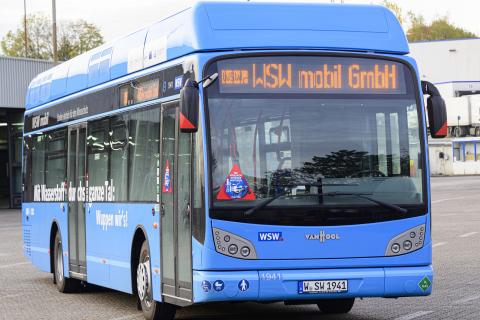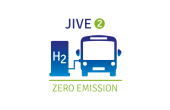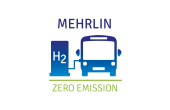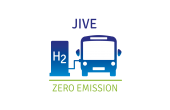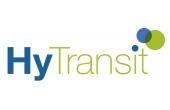The German Ministry of Transport has made millions of euros available for two transport companies in Germany, Stadtwerke Wuppertal (WSW Mobil GmbH) and Obergische Verkehrsgesellschaft (OVAG).
The state allocated €2,3 million in funding to WSW Mobil GmbH for the purchase of 10 fuel cell buses and refuelling infrastructure. Besides, the WSW Mobil GmbH will obtain an additional €1.08 million for the purchase of a storage unit to supply hydrogen to the fuel cell buses. This financial support is complemented by EU funding (from the Fuel Cells and Hydrogen Joint Undertaking - FCH JU) received for the purchase of the buses under the JIVE project, as well as for the construction of the infrastructure through the MEHRLIN project, co-financed by the European Union's Connecting Europe Facility.
The Obergische Verkehrsgesellschaft (OVAG) will receive €1.23 million for the procurement of a hydrogen fuel cell bus and a hydrogen storage unit.
Hendrik Wüst, the German Minister of Transport, stated, ‘Low emission coaches and especially public transport buses that practically travel all day can make an important contribution to clean mobility. In addition to funding gas, battery-electric and fuel cell buses, we have created the opportunity in North Rhine-Westphalia to increase the federal funding for retrofitting diesel buses with modern filter technology to 95 per cent. We are pleased that many transport companies are using this support’.
Ulrich Jaeger, Managing Director of WSW Mobil GmbH, said, ‘For Wuppertal and WSW Mobil, fuel cell technology is ideal for realising zero-emission local public transport. Such projects are currently not economically viable without public funding from the state. But politics and transport companies in North Rhine-Westphalia can be pioneers for green public transport in this way’.
Corinna Güllner, designated Managing Director of the Obergische Verkehrsgesellschaft, indicated, ‘we are pleased to received funding to purchase the first fuel cell bus from OVAG. This enables us to gain valuable experience as the basis for the further expansion and operation of an emission-free bus fleet’.
Source: FuelCellsWorks

